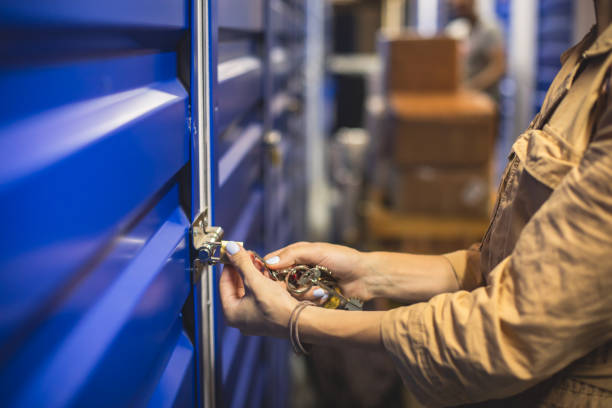Table of Contents
-
Why Businesses Are Turning to Self-Storage
-
What Types of Businesses Can Use Self-Storage
-
Benefits of Using Self-Storage for Business
-
Legal and Insurance Considerations
-
What You Can and Can’t Store
-
Frequently Asked Questions
-
Final Thoughts
Why Businesses Are Turning to Self-Storage
Small to medium enterprises SMEs and even corporates in Australia are increasingly opting for self-storage to solve space-related challenges. According to the Self Storage Association of Australasia SSAA, the self-storage industry has seen remarkable growth, with over 1500 facilities across the country supporting both personal and commercial needs.
Businesses choose storage units to
-
Reduce overheads by avoiding high commercial lease fees
-
Store seasonal stock, promotional materials or archived documents
-
Support flexible and decentralised working setups
-
Scale up or down depending on demand
With providers such as Kennards Self Storage, National Storage and Storage King offering tailored business solutions, the trend is more than justified.
What Types of Businesses Can Use Self-Storage
Virtually any business that requires space for items, not customers or staff, can take advantage of self-storage. Some common examples include
eCommerce and Online Retailers
-
Inventory management
-
Order packing and dispatch
-
Seasonal stock overflow
Trades and Construction
-
Tools and equipment storage
-
Spare parts
-
Job site organisation
Mobile Services and Freelancers
-
Photography equipment
-
Event materials
-
Workshop tools
Administration and Services
-
Archival of legal, medical or financial documents
-
Spare office furniture
-
Marketing collateral
Companies like Fort Knox Business Storage, StorageX Melbourne and SpaceUp even cater to niche business needs, from mobile tradespeople to real estate staging businesses.
Benefits of Using Self-Storage for Business
Here’s why thousands of Australian businesses are supplementing their operations with self-storage
Cost Savings
Commercial rent in places like Sydney and Melbourne averages over $500 per sqm. In contrast, a standard business storage unit can cost a fraction of the price with no long-term lease obligations.
Scalability
Business growing faster than expected Need less space during a slow season Self-storage adapts with you — scale up or down instantly.
Security
Reputable providers such as Aussie Self Storage and Guardian Storage offer 24/7 surveillance, gated access and on-site managers.
Convenience
Many facilities offer drive-up access, pallet jacks, trolleys and even receiving services for deliveries.
Climate-Controlled Options
For sensitive items like electronics or documents, providers like Super Easy Storage and CubeSmart offer climate-controlled units.
Legal and Insurance Considerations
While using self-storage for business is entirely legal in Australia, there are several caveats
Business Registration
You must operate a registered business even as a sole trader to use storage units for commercial purposes.
Compliance With Storage Terms
Most storage agreements explicitly prohibit hazardous materials, illegal items and living or working out of a unit.
Insurance
Some providers offer optional insurance such as Kent Storage and Wilson Storage, but it’s wise to insure through your business insurer for coverage of stored assets.
What You Can and Can’t Store
While self-storage units offer flexibility, there are essential guidelines.
Commonly Accepted Business Items
-
Inventory and stock
-
Office equipment
-
Tools and machinery
-
Marketing materials
-
Files and records
Prohibited Items
-
Perishable goods
-
Flammables or hazardous materials
-
Unregistered or giant machinery
-
Illegal items
-
Living animals
Check with each provider such as Storage Hub Australia or OzStorage Solutions for lists of restricted items.
Frequently Asked Questions
Can I run a business out of a storage unit
No, operating a business from within a storage unit for example seeing clients or daily staff work is typically prohibited. Units are designed for storage only. You can, however, store inventory, tools or equipment used for business operations.
Is it legal to store business documents in a storage unit
Yes, provided your documents do not contain prohibited or sensitive materials such as classified information. Many businesses use secure, climate-controlled units offered by providers like Securastore Australia or Grace Storage.
Are storage units tax-deductible for businesses
Generally, yes. Storage used wholly and exclusively for business purposes is often deductible under Australian tax laws. Always consult with a tax advisor or accountant.
How do I choose the right size unit
Estimate how much space you’ll need based on weight, volume or item count. Many providers such as Big Box Self Storage and StorageMax Australia offer online guides or size calculators.
Final Thoughts
So, can you use a self-storage unit for business purposes in Australia Absolutely — and with significant benefits. From cost-efficiency and security to flexibility and peace of mind, commercial storage is a valuable solution for modern businesses navigating space constraints.
Providers like Storage Geeks Australia, Corporate Business Storage Solutions and CubeSelf Storage are revolutionising the way Australian businesses store, scale and succeed — offering more than just extra square metres but also the freedom to grow on your terms.
Before signing a rental agreement, compare providers, check for business-specific features and ensure compliance with storage policies. With the proper setup, self-storage can be a strategic asset — one that supports your business goals without draining your budget.




